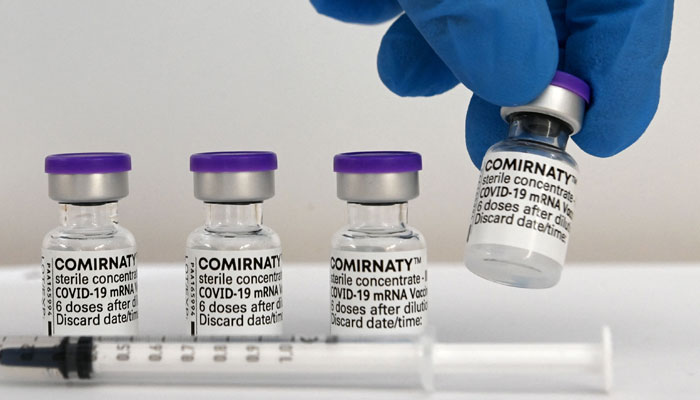mRNA vaccine may help prevent pancreatic cancer relapse
The participants develop T-cells in their blood against the tumours and persisted for two years
May 12, 2023

Early trials of a new mRNA vaccine for pancreatic cancer have shown promising results, lighting up hopes that their research could help prevent the relapse of this deadly disease.
The latest study found that half of the 16 patients responded to the mRNA vaccine — capable of teaching human immunity how to fight cancer — with none of the eight reporting their cancer returning.
The results of the findings were published in the journal Nature.
The participants developed T-cells in their blood against the tumours and persisted for two years.
Among the other eight participants who did not respond to the vaccine, six reported their cancer returning.
Pancreatic cancer is one of the most difficultly treated diseases and is fatal in 88% of its patients. Its tumours can be removed however, they come back within nine months in 90% of people.
It is also treated with Chemotherapy however, it is not cured properly. Radiation, immunotherapy, and targeted therapies are also unable to cure the disease.
Dr Neeha Zaidi, an oncologist at Johns Hopkins Kimmel Cancer Center who was not involved in the new research, said: "I think it's really promising. It highlights the mRNA platform and the versatility to be able to personalise or tailor these vaccines to each patient’s specific tumour and generate these customised vaccines in a fairly short amount of time."
She also added: "It remains to be seen, but certainly very exciting preliminary results."

The study was not aimed to test the effectiveness of the vaccines, instead, it was to see whether the therapy would feasible.
Researchers focused to find if the three-stage regimen they were testing would create the desired immune responses.
Dr Vinod Balachandran, a cancer surgeon at Memorial Sloan Kettering Cancer Center who led the study, said: "I think it's definitely very encouraging to see that [an immune] response correlates with recurrence-free survival. However, it is a small study with only 16 patients in phase one. So it is a correlation. It's not causation. We do have to test causation in a larger clinical trial."
In the study, doctors took samples of cancer and carried out genetic sequencing. They then compared the genes that were transformed in cancer cells. Then they picked the one that would most effectively target the cancer cells.
After that, the personalised vaccines were developed with mRNA technology and injected 8 doses in 16 patients.
Balachandran said: "The type of immune response you want to elicit is slightly different from the type of immune response that you want to elicit against a virus, where it's mostly antibody responses, and for cancer, you try to actually induce T-cell responses."
After eight doses the patients went through six months of chemotherapy before getting a last booster dose.
For those who did not respond to the vaccine, experts say it is because there are two main types of pancreatic cancer surgery. One involves the removal of the spleen along with the tumour.
The study found that the mRNA vaccine focuses on the spleen.
When researchers injected the vaccine into mice. Those with intact spleen responded well than those who did not have spleen.
The seven study participants had their spleen removed and five of them were in the group that didn't respond well to the vaccine, Balachandran said.
He also noted: The difference might be significant in a larger trial. He added: "So this is our current working hypothesis."











